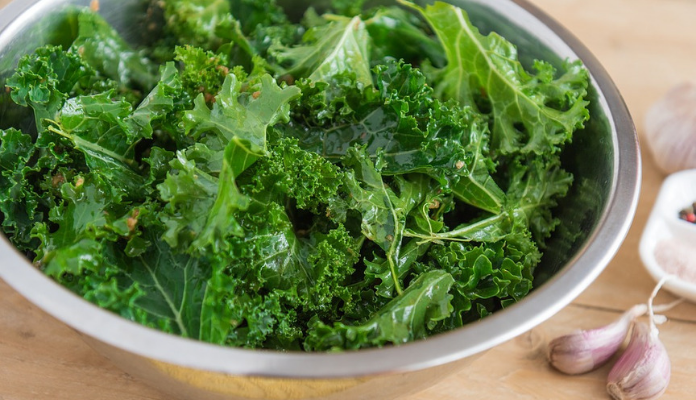Health Benefits Of Kale
Kale is a green leafy vegetable that belongs to the family of wild cabbage. It has green and purple leaves, generally smooth and curly at the ends. It is very easy to grow and can resist cold temperatures and frost as well. There are different types of kale varying in their appearance, taste and texture. It can be eaten in salads combined with some dressing. It can also be steamed and served as a vegetable and also be included in sandwiches.
Kale is very low in calories (49 kcals/1 00g) but is relatively high in fibre (3.6g11 00g), protein, vitamins and minerals. It is a very nutritional vegetable and is largely known for its following properties:
- Antioxidant and anti-inflammatory nutrients
- Richness of micronutrients
- Nutrients that can prevent cancer
A lack of antioxidants in the diet can lead to oxidative stress and the lack of anti-inflammatory nutrients can lead to chronic inflammation. Oxidative stress and chronic inflammation are great threats and instrumental in developing cancer. Kale has a high concentration of antioxidants – carotenoids and flavonoids. It has also been learnt that this vegetable has at minimum of 45 diverse flavonoids including kaempferol and quercetin, which makes it a great antioxidant.
Kale is essentially full with compounds that are said to have shielding effects against cancer. Glucosinolates present in this vegetable, once eaten and digested gets converted by the body into cancer preventive compounds. Also, the cholesterol-lowering effect of kale helps in maintaining cardiac health. The fibre present in kale binds very well with the bile acids and hence makes it easier for the body to get rid of them.
This vegetable from the cabbage family provides us with omega 3 fatty acids which have anti-inflammatory properties and protect our body from oxidative stress. It is a superb source of vitamin A, K, and C, copper and manganese and also a very good source of vitamin B2, B6, niacin, dietary fibre, calcium, potassium, vitamin E, iron, magnesium. protein and folate.
Kale is a superb source of vitamin A, K, and C, copper and manganese. It is also a very good source of vitamin B2, B6, Bi, niacin, dietary fibre, calcium, potassium, vitamin E, iron, magnesium, protein and folate
Precautions
- Kale is also a rich source of oxalate. Therefore, people with kidney problems and gall stones must consult a nutritionist before including kale in their diet.
- While buying kale make sure that its leaves are firm and the stem is moist.
- Store it at cold temperature to increase its shelf life and enhance its flavour.
